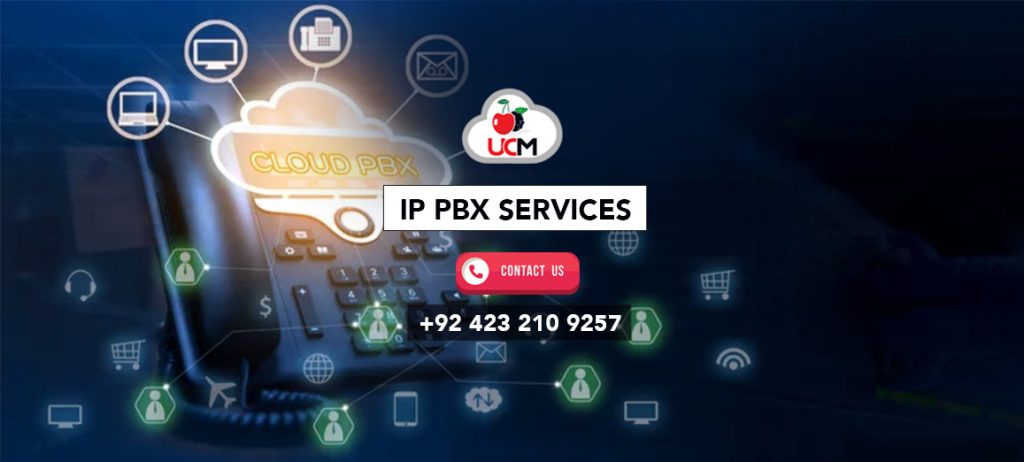The Ultimate Guide to IP PBX: Understanding IP Phone Systems and VoIP System
Why are IP Phone Systems Becoming a Popular Choice?
What if you can save more than 60% investment on your existing landline setup? Or if you have a reliable business phone system that facilitates remote teams and streamlines communication within and beyond the organization? Thankfully, turning this idea into reality is possible by moving from PSTN networks to the latest IP Phone Systems. With technological advancements, the latest internet-based VoIP PBX solutions have become the go-to option for all businesses. These phone systems offer cost savings or reliability allowing companies to operate from anywhere to stay ahead of the competitive curve.
What are IP Phone Systems?
In the traditional setup, desk phones and servers were necessary to accept incoming calls, creating a mess of cables in the office. The latest IP PBX phone systems have solved this problem, as you can continue business communication without a server or copper wire mess. Meanwhile, the system allows you to receive and place calls using VoIP technology. You may wonder what these IP-based phones look like; any handset with internet access and a compatible IP telephony app can be your VoIP phone. This popular alternative to the landline system dominates the market with its enhanced features and functionalities. These flexible solutions are a preferred choice for companies looking to improve voice-based communication.
How Are IP Phones Different From Traditional Phone Systems?
Although it seems like VoIP systems are only accessible to large businesses or established companies. That was once true, but now these advanced systems are economical for all sizes of companies. You can save money on initial setup as these advanced IP phones are easy to install. Moreover, advanced IP PBX VoIP Systems have more features than traditional phone lines. For instance, you can make phone calls, send text messages, or have video conferences in one convenient place. This unified communication experience will improve internal and external business communication and enhance team efficiency. You just need to choose the right service provider that ensures security and offers good call quality.
How Does VoIP Technology Work?
This system converts analog signals into digital signals. Later, it transfers these digital signals as data over a broadband line. When the VoIP system receives digital data from other systems or devices, it separates the data into information packets with each assigned an address. After the data packet is received in its final place, the phone user listens to this data as speech data. What you all need to have is an active internet connection. Even your remote teams can use the VoIP system regardless of physical location and collaborate with in-house teams to achieve common business goals.
Are VoIP Systems and IP Telephony the Same?
You may have heard about IP telephony or VoIP terminologies, which are sometimes considered the same. Some VoIP services also use them to explain how the phone system runs on the local area network to make calls using a router or modem. Still, they are different terms. Internet protocol (IP) telephony systems facilitate internet-based telecommunications. However, VoIP, or voice-over-Internet-protocol, is a more specific terminology. It is a technology that lets users make and receive voice calls through internet connections.
What are the Different Modes of IP Telephony Systems?
On-premises and cloud or virtual phone systems are two common types that function using a PBX. Let’s learn how they are different and which one is worth investing in:
- On-Premises System: In this setup, all the equipment, including hardware to place VoIP calls, is kept in the office. Meanwhile, the server and desk phone connection is managed in the office location. The system connects with PBX through LAN, allowing you to easily add advanced features or backup telephones. Interestingly, this setup gives you more control over your business phone system, and you can easily change connections and lines. However, you should have dedicated in-house IT support to manage and maintain the system. This can be quite expensive, or you must pay additional costs to facilitate external support.
- Cloud-Based/Virtual PBX: Sometimes, people use cloud PBX or hosted PBX interchangeably. In this setup, a third-party service provider manages everything related to your IP phone system. For instance, they handle setup or maintenance virtually, so you don’t have to hire an engineer or IT expert to install the system in your office. You just need an active internet connection and a device to install the IP software. The latest cloud systems are the best alternatives to traditional systems, allowing you to receive or make high-quality calls without the headaches of maintenance and facilitating remote work
Top Advantages of IP Telephony For Businesses
1. Easy to Setup & Maintain
Budget is an important thing to consider, especially for small business owners. IP-based systems are cheaper to install and set up because they can run on existing systems. You can keep your business calls flowing without expert IT staff on internet-connected softphones or handsets. Any person from your team can manage it. It also means your IP phones require less maintenance, like wire breaking or servers overheating in a traditional setup.
2. A More Reliable & Remote-Friendly Solution
You may be familiar with unreliable wired phone networks or annoyed with dodgy wires that only work in a particular position. IP PBX systems are reliable because you just need an active internet connection. You can even enable call forwarding mode to continue business communication in case of internet disruptions, which means no more downtime. VoIP-based systems are a great choice for remote workers. They also promote collaboration through video conferencing among your teams.
3. Facilitate Easy Scaling
When you make conference calls on landline phones or employ a new staff member, you must pay additional costs or need an expert to add a new phone line. There is no such hassle with IP phones. You just have to call the VoIP provider to add the person and install the software on the new device. This facility is effective for call centers. It allows you to develop a unified communication platform for your business, increasing customer satisfaction.
Final Thoughts
Today is the best time to upgrade to a Cloud-hosted VoIP solution to help your business thrive and outshine competitors. Investing in VoIP solutions gives you more than a business phone system; you get video conferencing, voice calling, and more call management features in one place. Level up your business operations and communicate globally by accessing CherryBerry UCM‘s cloud-based business phone system.
Outsource Your Customer Support to Inbound Call Center Services
Why are Inbound Call Center Services Vital for Modern Companies?
Nowadays, addressing customer needs has become a top priority for successful businesses. For instance, if you manage all customer service and support operations while keeping their emotions and attitudes in mind or communicate or engage them regularly, you will know their expectations and preferences. Moreover, plenty of communication platforms are available, but it is important to make it easy for customers to reach you whenever and wherever they want. This is why Inbound Call Center Services have become indispensable for modern businesses that want to outshine competitors. It is the perfect solution to achieve your business’s inbound communication goals. Let’s learn how.
What are Inbound Call Center Services?
It is a place where expert representatives manage customer service and support operations on your business’s behalf. They handle all types of incoming customer calls to get support for technical issues, information, order processing, or buying a product. The main aim of inbound call centers is to resolve customer issues and increase customer satisfaction. Efficient inbound call management also increases the chances of future sales as customers can share their feedback, complaints, and issues to enhance the customer service experience. Inbound service providers even ensure consistent service during peak hours. Hence, businesses can increase operational excellence by investing in these specialised services.
Which Services Inbound Call Centers Provide?
- Call Answering Services: Each person’s query or situation is unique, so you need an expert team to ensure a quick first-call resolution rate. Specialised inbound services have an expert team to communicate with customers politely. They ensure each inquiry is answered properly.
- Customer Service: The most common aim of all inbound services is to provide a better customer service experience to existing and new customers. Whenever your customers have any concerns or issues about your product or services, they can talk with your customer service team for resolution.
- Sales Calls: They also manage sales queries, especially when a customer needs assistance with your product or services. Your customer lead generation gives them the relevant information and completes their sales on the phone.
- Technical Support: Your customers may experience any technical problem with your product or services, and want to upgrade or renew their services. They can call on the technical support helpline to resolve such issues.
- Order Processing: Some businesses, like the hospitality industry, collaborate with inbound service providers to manage the orders over the phone. The expert teams ensure efficient order processing.
- Billing Support: Inbound call centres also offer services to resolve customer issues about billing or invoicing. They also guide you through various payment options.
- Appointment Settings: Service-oriented businesses like salons and healthcare sectors can team up with inbound services to manage appointments. Inbound agents help them schedule or reschedule appointments at convenient times.
- Surveys: These services can also conduct surveys for your business to collect valuable customer feedback. These insights help in improving services and products.
- Live Chat Facility: Customer support teams in the inbound call centres also manage your business communication on all communication channels, rather than mere phone calling, providing quick responses through live chat, etc.
How Do Inbound Call Centres Work? Basic Steps Involved
- Call Routing: In the typical inbound call centres, the incoming customer call is automatically routed to the most relevant agent, department, or extension. The call centre system does this by considering various factors like language preferences, calling reasons, and customer contact numbers.
- Greetings: Inbound services employ professional agents from the global talent pool who greet customers in a professional and friendly voice.
- Caller Identification: The customer service agents verify the caller’s identity from the database. They pull out customer interaction history or account information to manage interaction in a personal manner.
- Problem Analysis: They listen to your concerns, issues, and reasons for calling carefully. Inbound agents also ask for relevant details to assess your problem and concerns.
- Problem Resolution: Once they understand your needs, call center agents try their best to provide assistance and answer questions to resolve your complaints and issues.
- Call Forwarding: In case of highly complex and technical issues that the agents on call cannot resolve, they can forward the call to their supervisors for further assistance.
- Call Completion: Inbound agents finish calls professionally and politely. They also thank customers and invite them to call back for future assistance.
- Follow-Up: Later, agents also follow up with customers to ensure their issue is resolved or check if they need additional help.
Top Advantages of Collaborating with Inbound Service Providers
1. Improves the Quality of Customer Service
Inbound services provide instant and effective responses to customer complaints and inquiries that improve the customer service experience. The dedicated team manages customer calls to ensure customer issues are timely addressed, leading to enhanced customer satisfaction.
2. Increase Customer Loyalty
When you prioritise customer concerns and satisfaction by providing instant and effective support, this leads to a positive and superior customer service experience. Satisfied customers become your regular, loyal, and repeated customers, increasing your business sales and revenue. They remain loyal to your services and also suggest others use your services.
3. Offer Cost-Effective Support
When companies outsource their inbound calling operations to expert service providers, they only have to pay the costs of the services they are using. They can manage customer support operations without making investments in infrastructure, technology, and expert teams. These services are particularly beneficial for small and medium-sized organisations that do not have enough resources to develop in-house setups.
4. Improves Operational Performance
Specialised inbound services have advanced tools and technologies that automate many customer service and sales processes. The advanced features in these solutions also lower your agent load. For instance, auto-dialers, in-depth analysis, or CRM integrations can enable your agents to manage calls more efficiently or offer personalised support. Whether you want to manage a high volume of incoming calls in-house or outsource it to a specialised service provider, you can manage inbound calls with call center solutions.
Closing Thoughts
Managing a high volume of incoming customer calls can be challenging for companies, especially when customer experience is key to success. Prioritising customer needs can lead you to provide excellent customer service, enhance customer satisfaction, and increase productivity. Investing in Cloud call center services can make the inbound call management process easier. It is a cost-efficient solution to provide superior quality services to your existing and new customers. Get CherryBerry UCM inbound services to build a better business image without overinvesting.




